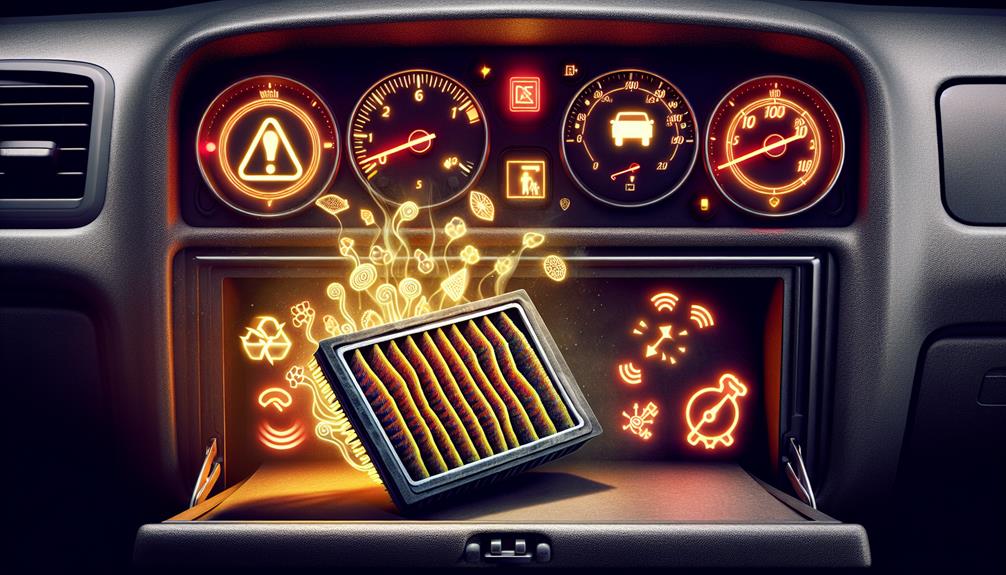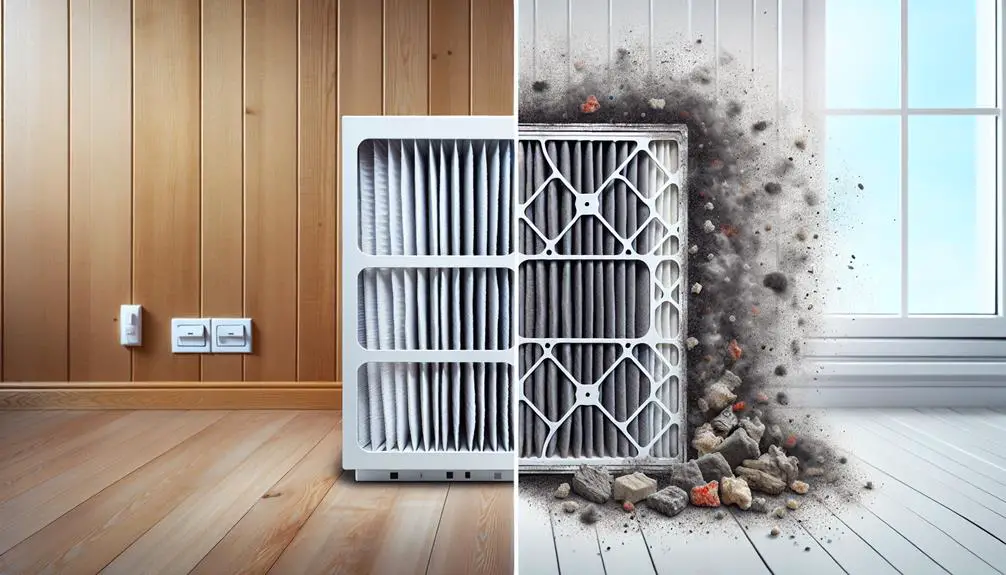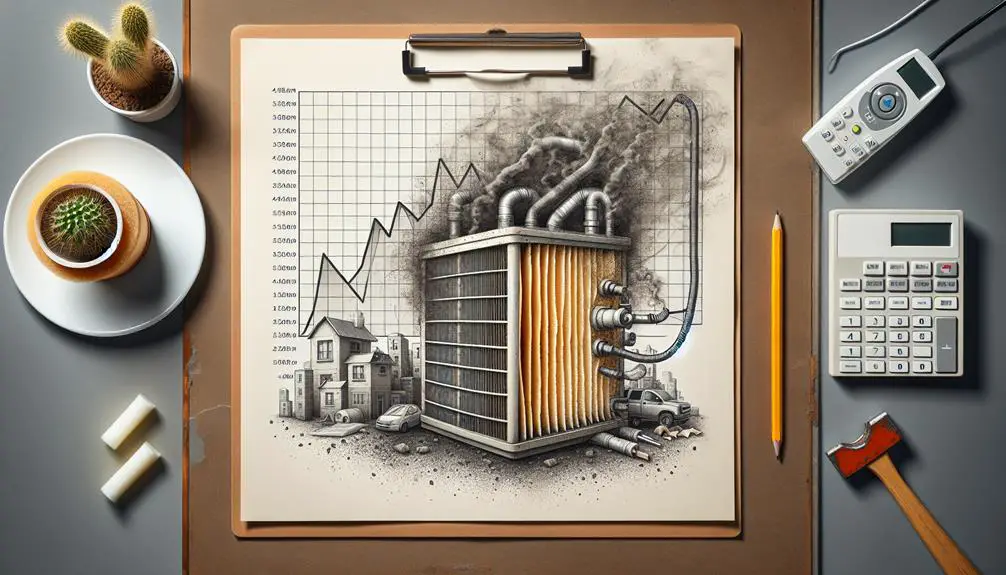Signs of a bad air filter include:
- Decreased airflow
- Unusual noises from HVAC
- Visible dirt
- Unpleasant odors
- Higher energy costs
Addressing these early prevents discomfort and saves money.
Decreased Airflow

If your HVAC system's airflow is weak, your air filter might be dirty or clogged. Dirty filters make your HVAC work harder and reduce airflow in your home.
Clean air filters are important for good air quality and smooth running of your system. Over time, filters get dirty with dust and pet dander, making them less effective. If airflow is low, check your filter. A dirty filter can also make your energy bills higher because your HVAC system has to work harder.
Changing your air filter can improve airflow and make your system more efficient. It's advised to change your filter every 30 to 90 days, but this depends on if you have pets and the filter's quality. Regularly check and replace your air filter to avoid problems and keep your HVAC system working well for a long time.
Unusual Noises
Checking your air filter is important for airflow, but also listen for odd noises from your HVAC system. These noises can mean the air filter is very dirty, blocking air, or making the system work too hard.
Whistling noises often mean the air can't pass through a clogged filter, signaling it's time to clean or replace the filter. Banging or rattling noises might show that debris is inside your HVAC system, reducing its efficiency.
If you hear these noises, turn off the system and check the air filter. If the filter is gray and dirty, replace it. Even if you can't see any damage, it might still be there.
Ignoring these sounds can cause big problems, like your system breaking down or needing expensive repairs. So, if your HVAC sounds strange, it probably needs a new air filter. Listen carefully to keep your system working well.
Visible Dirt and Clogs

If your air filter looks dirty or blocked, it needs attention. A filter that was once white but is now gray or black indicates a problem. This affects both air quality and how well your HVAC system or vehicle works.
Look for these signs:
- More dust around vents: More dust in your home or car might mean your air filter is blocked and not catching particles properly.
- Less airflow: A clogged air filter can reduce airflow, making your HVAC system or car AC work harder.
- Higher energy bills: If your heating or cooling system uses more energy because of bad airflow, your bills might go up. This could mean your filter needs checking.
- Debris on the filter: If you see things like pet hair or dust on the filter, you need a new one.
Ignoring these issues can worsen air quality and lead to more expensive problems. Check your filter today.
Unpleasant Odors
If your vents smell bad, it might mean your air filter needs checking. A dirty air filter can get clogged with things like dust and pollen, leading to bacteria and mold growth. This can make your home's air smell and could be bad for your health, especially if you have allergies or breathing problems.
Changing your air filter can fix the smell. Filters usually need changing every 30-90 days, but it depends on the filter type and your home situation. If you have pets, smoke inside, or live in a polluted area, you might need to change your filter more often.
If your vents smell, check your air filter. A clean filter can help remove smells, make your HVAC system work better, and last longer. Changing your filter is an easy way to improve your home's air quality.
Rising Energy Costs

If your energy bills are going up, it might be because your air filter is dirty. When your air filter is full of dust, pet hair, or other debris, your HVAC system works harder to move air around. This not only makes your system less efficient but also costs you more money.
Here's why a dirty air filter can make your energy bills go up:
- Less Air Movement: A dirty filter blocks air, so your system uses more energy to keep your home at the right temperature.
- More Damage: With a clogged filter, your HVAC system works harder than it should, which can cause it to break down more often or need to be replaced sooner.
- Unsteady Temperature: If you're always changing the thermostat to be comfortable, you're using more energy.
- Bigger Bills: These issues mean you'll see your energy bills increase.
Conclusion
If you notice less air coming out of your vents, strange noises, or see dirt and dust blocking the filter, it's time to change your air filter.
Also, if your house starts to smell musty or your energy bills are going up, it's a sure sign.
Changing a dirty air filter is easy and can save you trouble and money later. It's an important step to take.